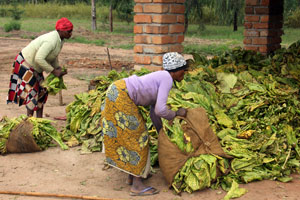John D. Pritchard has joined 22nd Century Group as vice president of regulatory science. Pritchard was formerly the head of regulatory science for Imperial Brands in the U.K.
At 22nd Century, Pritchard will oversee the global regulatory and compliance activities. He will engage with the U.S. Food and Drug Administration (FDA) in support of the company’s Modified Risk Tobacco Product (MRTP) application for VLN [very low nicotine] cigarettes,
In addition, Pritchard will work in support of the planned FDA rule to require the reduction of the nicotine content of all cigarettes sold in the U.S. to “minimally or non-addictive levels.”
Pritchard will also lead the company’s initiatives with foreign governments that are interested in 22nd Century’s proprietary very low nicotine content tobacco.
Over the course of his 12 years with Imperial Brands, Pritchard fulfilled key management roles in product stewardship, compliance, research and regulatory departments. As the head of Imperial Brand’s scientific regulatory engagement team, Pritchard led Imperial’s technical regulatory strategy and external scientific engagement on global product regulation. Pritchard has also held scientific and regulatory posts in the private and public sectors, including roles with Charles River, a leading global contract research organization, and with the U.K. Health Protection Agency (now Public Health England).
Pritchard received a Master of Science degree in toxicology from the University of Birmingham, England and his Bachelor of Science degree in pharmacology from the University of Aberdeen, Scotland. With work cited by the U.S. Surgeon General, the World Health Organization, and Public Health England, Pritchard has considerable experience in the fields of tobacco harm reduction and next-generation tobacco products.
“John Pritchard is joining 22nd Century at a pivotal moment,” says Henry Sicignano III, president and CEO of 22nd Century Group. “John’s knowledge and experience will be invaluable to the company’s efforts to engage lawmakers, public health officials, and FDA scientists in our mission to make VLN cigarettes the world’s first MRTP… and, even more importantly, to facilitate the FDA rule to make all cigarettes sold in the United States minimally or non-addictive. What’s more, John will spearhead our important discussions with foreign governments that are interested in bringing to market our proprietary very low nicotine content tobacco in their countries.”
“I am delighted with the opportunity to join the 22nd Century team and I look forward to working with a company whose mission is to reduce the harm caused by smoking,” explained Pritchard. “Smoking claims almost 500,000 American lives annually—and millions more worldwide. I believe 22nd Century’s proprietary technology will be a feasible and effective solution to the global epidemic caused by smokers’ addiction to nicotine.”










